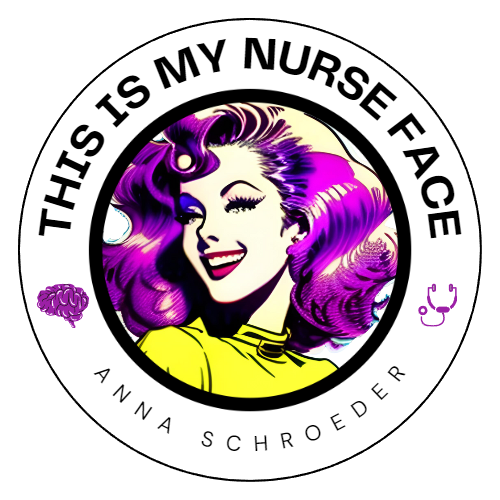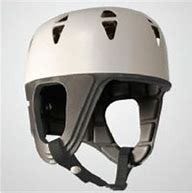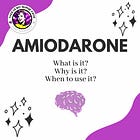I wish I was making this up. I wish I could open my cranium, scoop out my brain, and give it a good soak in some bleach.
Every long-time nurse has a story about some couple canoodling in the bathroom, setting off the v-tach alarm. Of the atrocious things they’ve had to help remove from people’s orifices.
Mine… *sigh*
If you want to avoid a similar fate, let’s lay some ground rules:
One: don’t douse your significant other in lighter fluid and set them on fire.
Two: don’t then help them extinguish the flames — actually, yes do do that— but then don’t get drunk and call your mom telling her you did this and laugh about it. While still in the house where you set your SO on fire.
Three: Look sharp, because your SO, also intoxicated, is coming at you with a hammer.
Four: Speaking to the SO now; don’t beat them with said hammer until you ‘can see their brains’ per police report.
Five: Then yes do, Holy Florance Nightingale, please do call 911.
Now, we’ve arrived at Rule Seven: arrive in my ICU. (The intervening EMS response, surgery, etc., all kind of lump into Rule Six.)
When I get this patient, his head is wrapped in so much Kerlex he looks like a human Q-tip. Intubated, of course. No intracranial pressure monitoring, because half of his cranium is currently in a freezer downstairs. Arterial line, PICC, repeat head CTs, JP drains, feeding tubes; all the usual Neuro-ICU happenings.
There is a week or so of slowly waking him up, checking responses, nearly dying a few times. Finally, he is extubated, awake, and stable. Still with a misshapen head but breathing on his own which is not something to sneeze at.
PS: you can see a person’s brain pulsing with their heartbeat after a craniectomy. It’s awesome. And they get to wear this fun helmet:
So, our friend, white helmet in place, eating through a PEG-tube, is in for a long recovery period. His mother visits often (SO is in jail) and we get to know her a little bit. We encourage stimulation during the day and rest at night. We recommend she brings in pictures and media he likes to help him relearn to talk. She is eager and determined to help him through this.
She starts reading to him. ‘What a great mom,’ you say. ‘Pity you raised a hooligan who sets people on fire, but way to be there in the tough times.’
Then…
My colleague goes still at her computer. She frowns, cocks her head, staring into nothingness. I inquire what the trouble is. She frowns and listens more intently. I listen, too.
Is someone coding? Seizing? Peeing on the floor?
If only. I can’t make out all the words, but ‘thrusting’ and ‘member’ and the c-word rise above the hum of ventilators. We look at each other, then creep our wheelie chairs closer to the door the better to eavesdrop.
You hear all sorts of things from families and patients. Curse words and racist garbage and conspiracy theories about electrodes in our brains.
I had never in my nursing career heard a mother reading her son an erotic novel. My colleague blanches the color of oatmeal. I shove down a hysterical giggle. The heroine moans loudly.
Colleague nudges me. I nudge her. We raise eyebrows and nod significantly. You go in, no, you go in.
I cave; I’m too morbidly curious. “I’m just going in to check on Mr. X,” I announce to the Unit. They can probably hear me down in Pre-Op. “Just walking over to check on Mr. X. Hourly rounding. Here I go.”
The mom pauses long enough to smile at me, then continues. ‘He took his pulsating—”
“Oh, good, you’re reading to him!” I exclaim desperately. “That’s excellent for neuroplasticity after TBI.”
“I found this at his house yesterday.” She holds up the book. There’s naked dude on the cover with strategically placed shadows. “He was in the middle of it, so I figured I would finish it with him.”
I have nothing to say. Do I stop her? Reading is good for neuroplasticity. Do I request something different and then have to explain why? Different strokes for different folks, and all that. (Literally, in the case of the main characters.)
I compromise. “He’s been awake for a long time today. Maybe he should have some lower-stimulation time.”
“Oh, okay! I’ll just finish this chapter and I’ll head out.”
“Great,” I say weakly. “Perfect.”
I escape and swing the door shut. Colleague’s mouth in hanging open, horror in her eyes. We then have to return to work, pretending our lives have not just been forever altered, a tiny piece of our souls withered into dry husks.
We will totally talk more about TBI and interventions in further posts of The Nurse Files. The first is up: all about amiodarone! Check it out here:
Not ragging on erotic novels! You do you. Just please don’t do you in someone’s medical unit while they’re trying to get on with their business. It kills us slowly.
Thank you for reading! Please subscribe and share with the buttons below. This is My Nurse Face posts bi-weekly and is completely free! I write about my experiences in the ICU and general nurse life and advice.
You can follow me on Instagram.
If you liked this, please check out my other Substack: WritingRampant. No nursing, but occasional blood and guts. (My characters like to stab each other. Such drama queens...)
Enjoy!
Anna, RN, BSN, CCRN
Necessary disclaimer: I am discussing medications and medical conditions in this article based on my personal experiences as a nurse. Your facility may have different requirements and resources. Use your own nursing judgement to assess and treat your patients according to your governing body and facility guidelines. All information within this article is correct to the best of my knowledge, but should be confirmed through verified evidence-based sources. I am not responsible for any clinical decisions made based on this advice.









How did this influence your decision to become a published author, and your choice of genre?